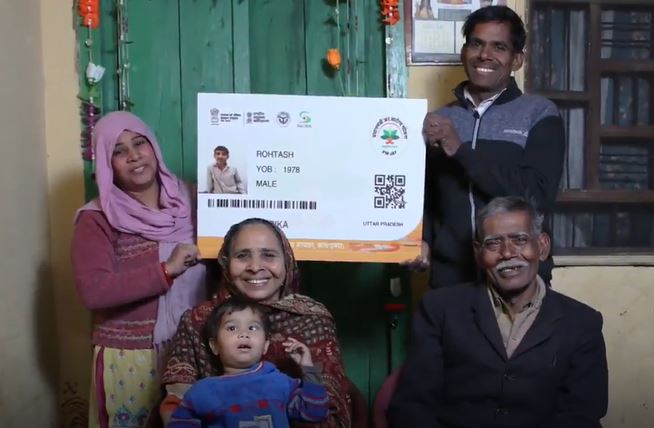At the third anniversary of the world’s largest govt-funded health scheme, an aggressive expansion is on cards
As a country, we have run successful population scale immunisation campaigns to eradicate diseases like smallpox and polio. These campaigns involved the whole-hearted participation and one of the largest ever mobilisation of all segments of society.
At the same time, we continue to face significant challenges in the healthcare sector to bring equitable access to quality healthcare for all Indians.
With an out-of-pocket expenditure of nearly 60 per cent in healthcare, the hospitalisation rates have been even lower in the economically weaker sections of the society. For many Indians, hospitalisation bears severe socio-economic consequences. It is estimated that nearly 60 million Indians get pushed into poverty due to catastrophic out-of-pocket expenses.
In the backdrop of such conflicting realities, Ayushman Bharat Pradhan Mantri Jan Arogya Yojana (AB PM-JAY) was launched on September 23, 2018, by Prime Minister Narendra Modi. In the three years of its existence, the scheme has contributed significantly to address the challenge of equitable access to in-patient healthcare for the poor.
AB PM-JAY has facilitated approximately 2.2 crore hospital admissions worth ₹26,450 crore through a network of nearly 24,000 hospitals across the country. The scheme has emerged as the world’s largest government funded healthcare scheme that aims to cover 10.74 crore families or 53 crore individuals, identified from the Socio-Economic Caste Census database of 2011. It is pertinent to note that the 33 States/UTs implementing AB PM-JAY have further expanded the beneficiary database to 13.44 crore families (65 crore individuals).
With a vast network of 24,000 empanelled healthcare providers across India, AB PM-JAY is implemented through a robust data-driven technology framework. The PM-JAY IT system has the capacity to handle more than 30 beneficiary verification transactions per second. Additionally, 28 hospital admissions are raised on the PM-JAY transaction management system per minute.
The scheme has essayed a crucial role in enlisting the support of the healthcare ecosystem to foster improved access to quality healthcare. This is evident from the fact that nearly 60 per cent of all hospitalisations have come from the private sector. Furthermore, perhaps for the first time, a healthcare scheme has put gender equality at the forefront. Approximately 50 per cent of Ayushman card recipients are women and over 47 per cent of the authorised hospital admissions have also been availed by women.
Looking ahead
So what does the future hold for Ayushman Bharat PM-JAY? As we complete three years, we are now looking to aggressively expand the footprint of the scheme and create a bigger impact on the healthcare ecosystem and wider society.
We have set an ambitious target to enrol 10 crore new beneficiaries in the current fiscal year. We are re-engineering our beneficiary identification systems to facilitate easier and faster enrolment for the scheme’s beneficiaries.
Further, we understand the importance of keeping vital stakeholder such as healthcare providers involved engaged and incentivised to partake in the scheme. Therefore, we are rationalising packages, rates, and treatment protocols to align the same with the expectations of the medical fraternity. This will help in making the packages more viable for the empanelled healthcare providers and attractive for newer ones to join the PM-JAY ecosystem. We are also making our IT platform more robust to streamline and automate claim adjudication protocols for faster claim settlements. Through programmes like Ayushman Mitra, we look to reinvigorate the participation of our HCWs (healthcare workers), FLWs (frontline workers), civil society and make their role more integral to the growth and success of this scheme.
AB PM-JAY has made access to advanced healthcare a reality for countless number of marginalised Indians. As we look to enter a post-pandemic world, AB PM-JAY aspires to build a healthcare super-highway in consonance with the National Digital Health Mission (a flagship scheme also driven by the NHA) to offer a holistic continuum of healthcare for innumerable families in the country.


